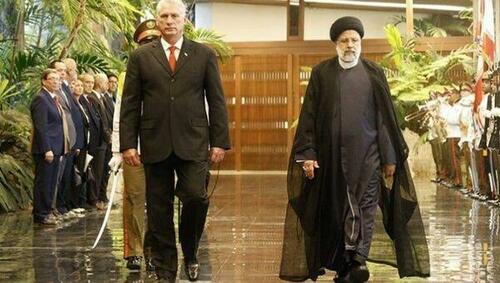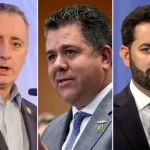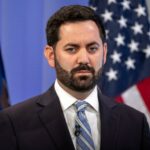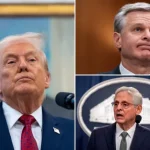
Iranian President Ebrahim Raisi met with Cuban President Miguel Diaz-Canel and former president Raul Castro in Havana on Thursday during the last leg of his Latin American tour.
Six bilateral agreements to expand economic, political, and judicial cooperation were signed during Raisi’s visit to the Caribbean island. "Our cooperation in the path to progress can create hope in independent nations and despair in imperialists," the Iranian president said on Thursday, stressing the necessity of unity among like-minded nations to deal with "global arrogance."

"Iran is ready to cooperate with all countries, but if a country acts against our nation’s interests, we will oppose it," Raisi added.
He hailed Iran-Cuba relations, saying, "In the years following the victory of the Islamic Revolution, the relations between the two countries have been enhancing, and constructive mutual cooperation has taken place in recent years, especially during the coronavirus pandemic."
The Cuban president called Raisi’s visit "meaningful" and said it is a sign of "common values and views" between Havana and Tehran.
"The three countries you chose as the destination for your regional trip have a meaningful relationship with the Iranian Revolution. I am confident that your visit to Cuba will be a turning point in the history of relations between the two countries," Diaz-Canel said.
"Venezuela, Nicaragua, Cuba, and Iran are among the countries that have heroically confronted sanctions… threats, blockades and interference by Yankee imperialism and its allies with a tenacious resistance."
"This visit reinforced our conviction that we have in Iran a friendly nation in [West Asia], with which to confide… and talk about the most complex global issues," the Cuban leader added.
Furthermore, Raul Castro hailed Iran’s 44 years of resistance, highlighting, "The era of unilateralism is over, and we are moving toward multilateralism." Raisi visited Havana after concluding his tour of Venezuela and Nicaragua.
Before setting off to Cuba, the Iranian leader spoke at the Nicaraguan parliament, where he took aim at the hypocrisy of western states and highlighted the ongoing transformation of the world order and the decline of the US.
The signing ceremony of bilateral cooperation documents between Iran and Cuba was held in the presence of the presidents of the two countries, and the high-ranking officials of the two countries signed 6 cooperation documents and memoranda of understanding. pic.twitter.com/qHAACIIKhq
— Iran Foreign Ministry 🇮🇷 (@IRIMFA_EN) June 15, 2023
"The domineering powers want to force their selfish interests on the nations, and that’s why we should question why the US and some western countries, who pretend to care about human rights, freedom, and democracy, don’t respect the real votes of the nations in Palestine, Lebanon, Afghanistan, Iraq, Syria, and Latin America," Raisi said.
"Military occupation, coup, and sanctions" are the tools of the west against independent nations, the Iranian leader stressed, adding, "The US and western countries claim to fight terrorism verbally, but in reality, as they admitted during the US presidential election, they created and supported [ISIS]."
"The current world order is changing, and the indicators show that the authority of domineering power and the US is declining, and the will of the nations in Latin America and West Asia is rising," he said.
Iranian President Ebrahim Raisi met with Cuban President Miguel Diaz-Canel and former president Raul Castro in Havana on Thursday during the last leg of his Latin American tour.
Six bilateral agreements to expand economic, political, and judicial cooperation were signed during Raisi’s visit to the Caribbean island. “Our cooperation in the path to progress can create hope in independent nations and despair in imperialists,” the Iranian president said on Thursday, stressing the necessity of unity among like-minded nations to deal with “global arrogance.”

“Iran is ready to cooperate with all countries, but if a country acts against our nation’s interests, we will oppose it,” Raisi added.
He hailed Iran-Cuba relations, saying, “In the years following the victory of the Islamic Revolution, the relations between the two countries have been enhancing, and constructive mutual cooperation has taken place in recent years, especially during the coronavirus pandemic.”
The Cuban president called Raisi’s visit “meaningful” and said it is a sign of “common values and views” between Havana and Tehran.
“The three countries you chose as the destination for your regional trip have a meaningful relationship with the Iranian Revolution. I am confident that your visit to Cuba will be a turning point in the history of relations between the two countries,” Diaz-Canel said.
“Venezuela, Nicaragua, Cuba, and Iran are among the countries that have heroically confronted sanctions… threats, blockades and interference by Yankee imperialism and its allies with a tenacious resistance.”
“This visit reinforced our conviction that we have in Iran a friendly nation in [West Asia], with which to confide… and talk about the most complex global issues,” the Cuban leader added.
Furthermore, Raul Castro hailed Iran’s 44 years of resistance, highlighting, “The era of unilateralism is over, and we are moving toward multilateralism.” Raisi visited Havana after concluding his tour of Venezuela and Nicaragua.
Before setting off to Cuba, the Iranian leader spoke at the Nicaraguan parliament, where he took aim at the hypocrisy of western states and highlighted the ongoing transformation of the world order and the decline of the US.
The signing ceremony of bilateral cooperation documents between Iran and Cuba was held in the presence of the presidents of the two countries, and the high-ranking officials of the two countries signed 6 cooperation documents and memoranda of understanding. pic.twitter.com/qHAACIIKhq
— Iran Foreign Ministry 🇮🇷 (@IRIMFA_EN) June 15, 2023
“The domineering powers want to force their selfish interests on the nations, and that’s why we should question why the US and some western countries, who pretend to care about human rights, freedom, and democracy, don’t respect the real votes of the nations in Palestine, Lebanon, Afghanistan, Iraq, Syria, and Latin America,” Raisi said.
“Military occupation, coup, and sanctions” are the tools of the west against independent nations, the Iranian leader stressed, adding, “The US and western countries claim to fight terrorism verbally, but in reality, as they admitted during the US presidential election, they created and supported [ISIS].”
“The current world order is changing, and the indicators show that the authority of domineering power and the US is declining, and the will of the nations in Latin America and West Asia is rising,” he said.
Loading…





